Solus Christus
A CHARLOTTE MASON house of studies
Grades 7–12 Community Cooperative
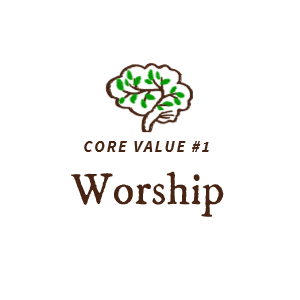
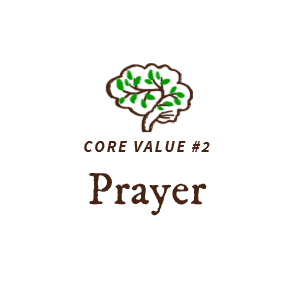
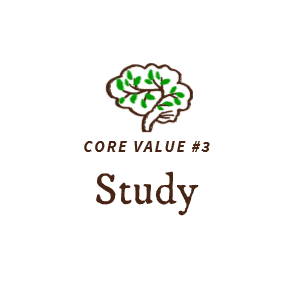
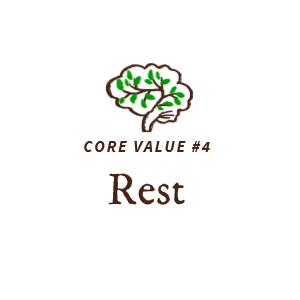
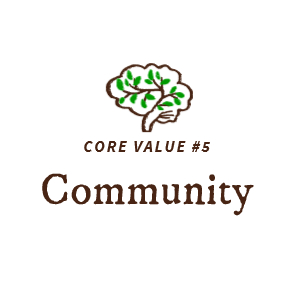
Solus Christus is a Charlotte Mason Institute (CMI)-accredited educational community cooperative serving families living in and around the Casa Grande area. Our mission is to support the family’s desire for their student to engage in deeply enriching community learning experiences through shared learning objectives rooted in Charlotte Mason educational philosophies. We seek to compliment the family’s choice for a quality, sound liberal arts education while also growing the Charlotte Mason community of home educators and greater student body.
Full-time onsite classes at the House of Studies are specifically designed for middle school and high school grades 7–12 (CM Forms 3 through 6) as a combined group cohort. We have a low onsite student-to-teacher ratio of 12:1—limited seats are currently available. Daily studies take place Tuesday through Friday, 9 a.m. to 3:30 p.m. with a 30 minute lunch break. We operate a 36-week academic calendar with designated holiday breaks. Please see below for additional details.
Relational Education
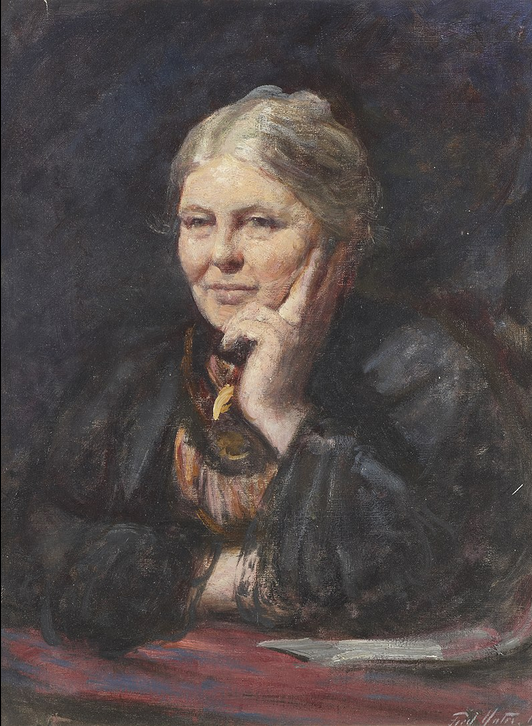
The Home Education Vision
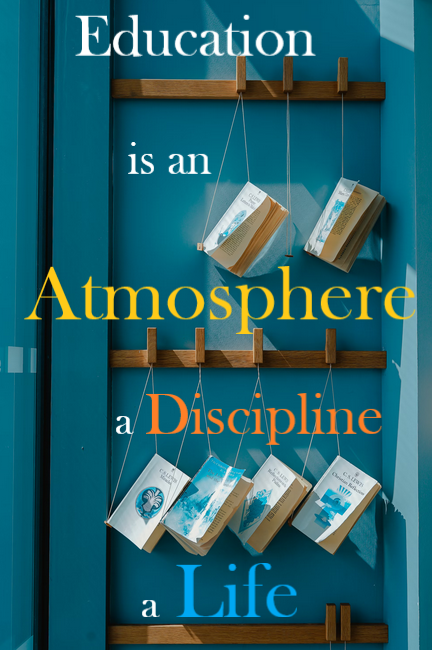
When we say that education is an atmosphere, we mean a place adapted and prepared for the presentation of living ideas designed to profoundly impact the nature of the student in positive ways. Students learn better when they are immersed within natural home environments that mirror comfortably-familiar, peaceful, and aesthetically=pleasing atmospheres that allow for the presence of God to dwell uninhibited, so that they may learn freely amongst their peers in proper conditions.
To say education is a discipline, we mean the discipline of habits, formed definitely and thoughtfully, as in habits of body and mind. Physiologists remind us that habits are formed through the adaptation of brain structures responding to habitual lines of thought.
And in saying that education is a life, we are speaking to the need of physical, moral, and intellectual sustenance which the mind must have in order to be nourished. The mind feeds on great ideas, and so it is our honor as hosts, mentors, and teachers to prepare a generous feast of living ideas, books, and curriculum for the student to feed upon, as to remain sustained far beyond the classroom environment.
These foundational elements are necessary for sound education, and they are Charlotte Mason’s timeless precepts in which we honor for every child who learns with us.
House of Studies
Cottage School

Program Information
Middle & High School Grades 7–12 | 2024–2025
A Bird's-Eye View
Hymns, Cantiles & Christian Art Studies
Religious music and art are inextricably woven into our souls by way of our spirits. The Christian hymn tradition, in particular, is so rich in content and nature with its deep connections to important theological ideas and liturgical practices that we place it first and foremost in our daily activities. Interestingly, there are more than 165 references to singing in the Word of God, from the “Song of Moses” in Exodus 15 to the “Song of Praise to God Coming in Judgement” in Psalm 96. The practice of giving daily glory to our Creator Father is inspired by several forms of expression, such as the practice of devotional and biblical readings; the hearing of modern, traditional and ancient hymns, cantiles and chants, along with the viewing of ancient and contemporary religious art which helps us reflect on Christ’s sacrifice, suffering, and commitment to us as His beloved creation.
History & Geography (Ancient, World, U.S.)
History from ancient and modern eras are so varied that it is helpful to think about it like a Van Gogh painting made entirely of little dots all put together (pointillism) rather than a line drawing. Ancient, world, and cultural histories will most often intersect by region or topic rather than strictly by chronological order. In this way, history and geography streams begin to overlap throughout the year. As we read about the various events, people, and regions of the world, a sense of the time period as a whole will emerge as a picture emerges from many different dots.
Living Books Literature & Reading
Stories from literature help us better understand humanity and spark imagination with stories that transcend time and culture. Genres of study include biblical stories, historical fiction, Shakespeare, epic poetry, and other literature pieces. Reading and speaking literature delights students as they learn timeless stories, meet a variety of characters, enrich their minds, and instruct their consciences. Students enjoy hearing literature read aloud and also speaking it aloud fluently and, finally, writing short compositions, comparisons, and commonplace entries in relation to the piece. Students in all grades start reading more texts written during the time period studied along with classic pieces. Books are grouped into two distinct categories: group readings and personal readings. The literature utilized in group readings are able to span multiple ages and grade levels while stretching the student’s comprehension, vocabulary, and reading level as a whole. The literature utilized in personal readings are tailored to a specific subject, grade, comprehension, or reading level which is more or less individualized in nature.
Writing, Narration & Oratory
Narration is the act of retelling events in a student’s own words, written or orally, in sequence, and with great detail. It is a type of oral essay response to broad open-ended questioning for a recall of information regarding a literature piece. Living books are written in a way that makes narration easy as events come to life through the story and characters. Here we practice close-reading techniques in different genres and authors to aid students in the development of memory, enthusiasm, sympathy, wide outlook, and sound judgement regarding life and literature. Students become proficient in public speaking and narration through reading aloud histories, poetry, liturgies, prayers, etc., which aid in the embodiment of truth in a literature piece.
English Grammar & Language Studies
Students are taught to apply grammatical knowledge to their own written narrations and compositions throughout the year. The writing content primarily focuses on what students are learning in the literature and histories presented. Advances in writing composition occur naturally and organically as students become more adept at organizing and expressing ideas beautifully and masterfully.
Music History & Composer Studies
Overall, music is an everyday part of the student’s atmosphere as we study throughout the day. Our formal lessons expose the student to a number of significant classical and contemporary music composers and compositions, providing a sense of the sounds of a particular time period studied throughout the program and introducing them to a variety of beautiful musical pieces, genres and traditions. Elie Sigemeister once said, “Music is no isolated thing. Its forms, colors, and expressive qualities do not spring from nowhere; they come out of life itself. Often, of course, they are to be enjoyed for themselves alone, in the concert hall or one’s armchair. But music also reflects human experiences, hopes, and struggles. It may give an insight into the individual and society, into the lives of those far removed from our own in time and place—an insight no other art can provide in this exact way.”
Art Appreciation & Architecture Studies
Picture study is a part of the subject of Art Appreciation. Students will study six or more works each term in order to build a relationship with each artist and the pervading styles of the period. This will enable them to recognize the artists as old friends when they happen upon them again cross-curricular, in museums, or later on in life. In Architecture, students will consider what makes for beauty in design as we explore cathedrals, museums, and cultural sites around the world in order to gain an appreciation for artistic expression throughout history.
Euclidean Geometry & Universal Constructions
Galileo thought of the universe in terms of mathematics, expressed in triangles, circles and other geometric shapes. There is a divine language speaking eloquently through mathematics—similar to poetry—translating truth that never changes. We see evidence of this shown in the stars and planets; ancient art and architecture; human DNA strands; all biological life including animals, insects, plants, flowers, and molecular structures, etc. From the macrocosm down to the microcosm, we see our Creator’s symphony of mathematical language being played out for all to see, if we simply begin to view it from a closer and more intentional place.
For more than a millennia, the liberal art of Geometry was indeed Euclid’s elements, as it aids in highly-developed logical thinking skills through mathematical propositions based in universal constructions. Historically, geometry provided a basis for logical proofs in mathematics, and since geometric shapes drawn out with a compass and straight edge make the subject matter more concrete, Charlotte Mason believed it should be presented after elementary mathematics. Her philosophy regarding mathematics as a whole is eloquently summed up in the following quote: “The chief value of arithmetic, like that of the higher mathematics, lies in the training it affords the reasoning powers, and in the habits of insight, readiness, accuracy, intellectual truthfulness it engenders.”
Natural Sciences & Nature Studies
Charlotte Mason believed students should be immersed in the natural sciences and botanical living studies regarding the anatomy of plants, animals, insects, cells and microorganisms. Nature studies give us an intimate look at plant and animal behaviors to awaken wonder and interest in developing deeper relationships with God’s creation. The study of natural history allows us to examine the biodiversity of a particular area or region, looking attentively at the interconnection between plants and animals across the landscape and throughout time. Our botany studies are primarily centered on gaining understanding of and building relationship with the local ecology of the Southwestern Sonoran desert region and plants which can thrive in the biosphere, which is the land we are intimately tied to as a whole. In addition, we take deep dives into patterns and methods of plant identification; propagating, planting, and harvesting of plants found in many parts of the world; as well as the science of pollinators and art of beekeeping. Field trip nature studies are offered on weekends through our Living Studies program.
Program Fees
-
Annual Registration Fee (per family) $250 per year
Charlotte Mason Institute (CMI) Alveary registration fee per family. This applies to unlimited family members under one household name.
-
Tuition (Parent-Volunteer) Volunteer once per week (gardens & classroom)
Families with students in grades 7–12 may come and learn at the House of Studies freely. space permitting. While their students are actively engaged in classroom instruction, parents must agree to volunteer at least once per week, either in the community gardens or assisting in the classroom environment—in lieu of tuition.
-
Books & Supplies Approx. $125 per student, per month
All books, supplies, and extracurricular activities are assumed by the parent and are the parents' sole responsibility. The parent purchases the educational materials and other personal costs related to the student per term (for a total of three terms). The books and supplies then remain the property of the student/family after completion of the term or academic year.
Holidays & Breaks
Empowerment Scholarship Account (ESA) Funding
Solus Christus is an approved vendor for the Arizona Department of Education’s Empowerment Scholarship Account (ESA). Empowerment Scholarships expand educational opportunities for eligible students outside of the public school system, provides funding that can be used for a wide variety of educational expenses, and pays for private school tuition, educational therapies, tutoring, and more. Families interested in this funding are encouraged to apply directly at the Arizona Department of Education ESA homepage.
College Preparation
For post-high school higher-learning college opportunities, you can visit our accreditation page link below.

